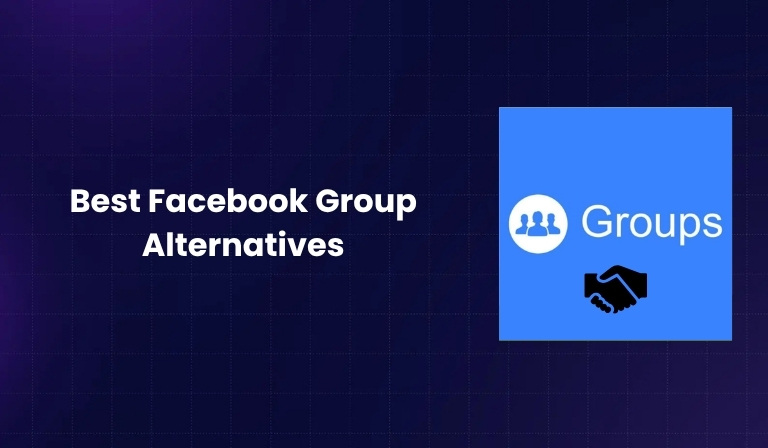In 2025, creators, coaches, educators, and businesses are looking for more control, better engagement, and greater monetization from their communities. That’s why many are moving away from Facebook Groups and searching for better alternatives. Whether you want a distraction-free environment, stronger branding, or integrated monetization tools — this list is for you.
Why Look for Facebook Group Alternatives in 2025?
Facebook Groups were once the go-to place for building online communities. But over the years, several issues have led people to explore other options:
- Declining engagement: The algorithm no longer favors organic posts as it once did.
- Limited control: You can’t fully brand or customize your group.
- Data privacy issues: Facebook’s track record on user data raises concerns.
- Lack of monetization: You can’t directly charge members or sell premium experiences.
- Overcrowded feeds: Members often get distracted by unrelated content.
What to Consider When Choosing a Facebook Group Alternative
Before picking a new platform, think about what features matter most to your community goals:
- Customization: Can you use your own branding?
- Privacy: Does the platform protect your users’ data?
- Monetization: Can you charge for access or offer premium features?
- Integrations: Does it connect with tools like email, CRM, or course platforms?
- Ease of Use: Is it intuitive for both admins and members?
21 Best Facebook Group Alternatives in 2025 (Reviewed)
Each of these alternatives brings something unique to the table. Choose based on your needs — whether it’s monetization, control, branding, or community engagement.
1. Mighty Networks
A powerful all-in-one platform for building branded communities, selling courses, and hosting events.
Key Features:
- Native app access
- Course and event hosting
- Community feed and spaces
- White-label branding (with Pro)
Pros:
- Excellent user experience
- Monetization options
- Community + course integration
- Mobile-friendly
Cons:
- Advanced features behind paywall
- Steep learning curve for beginners
Best For: Coaches, course creators, and niche communities
Pricing: Starts at $39/month
2. Thinkific
Primarily an online course platform, Thinkific now offers community features to complement learning.
Key Features:
- Community spaces
- Course + membership integration
- Branded experience
- Drag-and-drop builder
Pros:
- Great for educators
- Monetization built-in
- Integrates with other tools
Cons:
- Limited community features
- Focused more on courses
Best For: Educators and online trainers
Pricing: Free plan available; paid plans from $49/month
3. Kajabi Community
Kajabi is an all-in-one platform that includes landing pages, email marketing, and now — community features.
Key Features:
- Full sales funnel tools
- Private community space
- Native app support
- Course integration
Pros:
- Ideal for content creators
- Monetization features
- High-quality design templates
Cons:
- Expensive for beginners
- Slightly complex dashboard
Best For: Coaches and digital entrepreneurs
Pricing: Starts at $149/month
4. Circle.so
A modern, clean community platform that’s popular among creators and course builders.
Key Features:
- Private spaces
- Live streaming & events
- Embeddable widgets
- Zapier integration
Pros:
- Sleek UI
- Great moderation tools
- Custom branding options
Cons:
- No built-in course tools
- Requires integrations
Best For: Creators, educators, and online brands
Pricing: Starts at $49/month
5. Tribe (Bettermode)
A customizable and scalable community platform with enterprise-grade capabilities.
Key Features:
- Custom domain
- API integrations
- Spaces and groups
- Gamification
Pros:
- Highly flexible
- Embeds into your website
- Modern UI
Cons:
- Technical setup needed
- Pricey for small communities
Best For: Startups and SaaS businesses
Pricing: Custom pricing
6. Discord
Originally for gamers, Discord is now a favorite for real-time community interaction with channels and voice chat.
Key Features:
- Text and voice channels
- Bots and automations
- Roles and permissions
- Event scheduling
Pros:
- Free to use
- Real-time engagement
- Active user base
Cons:
- Steeper learning curve
- Not ideal for structured courses
Best For: Tech-savvy communities and hobby groups
Pricing: Free; Nitro starts at $9.99/month
7. Slack
Slack offers a more professional, team-based approach to community building.
Key Features:
- Channels and threads
- File sharing and integrations
- Polls, bots, and apps
- Video calling
Pros:
- Great for remote teams
- Real-time communication
- Highly integrable
Cons:
- Less casual for social communities
- Limited on free tier
Best For: Professional or workplace communities
Pricing: Free plan available; paid from $7.25/user/month
8. LinkedIn Groups
A built-in community feature on LinkedIn, ideal for B2B networking and professional discussions.
Key Features:
- Access via LinkedIn profiles
- Posting and commenting
- Notifications
- Moderation tools
Pros:
- Easy to find professional members
- Organic visibility on LinkedIn
- No additional platform needed
Cons:
- Limited features
- Engagement tools are basic
Best For: Professional groups and industry forums
Pricing: Free
Also Check: 10 Best AI Landing Page Builders For Creating High-Converting Pages
9. WhatsApp
A popular messaging app that supports groups with up to 1024 participants.
Key Features:
- Group messaging
- Voice/video calls
- Broadcast lists
- End-to-end encryption
Pros:
- Easy access
- Great for quick updates
- Free and mobile-first
Cons:
- No structure for larger communities
- Hard to moderate at scale
Best For: Small, close-knit groups
Pricing: Free
10. Telegram
Another messaging app known for supporting large groups and channels.
Key Features:
- Groups with up to 200,000 members
- Broadcast channels
- Bots and integrations
- Custom stickers
Pros:
- Massive community capacity
- Cloud-based sync
- Fast and lightweight
Cons:
- Not built for structured community management
- Minimal branding options
Best For: Large, informal communities
Pricing: Free
11. Reddit
An open forum platform with subreddit-based communities.
Key Features:
- Threaded discussions
- Voting system
- Anonymous participation
- Community rules
Pros:
- Easy visibility
- Viral potential
- Niche communities thrive
Cons:
- No direct control
- Public discussions only
Best For: Open-topic communities and casual forums
Pricing: Free
12. Discourse
An open-source discussion platform with threaded forums and plugin support.
Key Features:
- Category-based forums
- Search and tagging
- Trust levels and moderation
- Self-host or cloud-hosted
Pros:
- Great for knowledge bases
- Customizable
- Ideal for structured discussions
Cons:
- Requires tech setup
- Less real-time interaction
Best For: Support forums and technical communities
Pricing: Free self-hosted; paid plans from $100/month
13. Vanilla Forums
A flexible community platform for building branded forums.
Key Features:
- Theming and branding
- Analytics
- SSO and integrations
- Knowledge base tools
Pros:
- Enterprise-ready
- Great support features
- Customizable
Cons:
- Not ideal for real-time chat
- Premium pricing
Best For: Enterprise and customer communities
Pricing: Custom pricing
14. Uscreen
A video membership and monetization platform with community support.
Key Features:
- Live streaming
- Video-on-demand
- Membership tiers
- Chat and discussions
Pros:
- Great for video-first creators
- Monetization built-in
- Branding control
Cons:
- Community tools are secondary
- Expensive
Best For: Video creators and fitness instructors
Pricing: Starts at $149/month
15. Podia
A simple platform for selling courses, webinars, and digital downloads with community support.
Key Features:
- Courses + digital products
- Community spaces
- Website builder
- Email marketing
Pros:
- All-in-one tool
- Beginner-friendly
- Good support
Cons:
- Community features are basic
- Not very customizable
Best For: Solo creators and digital sellers
Pricing: Starts at $39/month
16. Patreon
A popular platform for membership subscriptions with limited community features.
Key Features:
- Tiers and rewards
- Posts and messages
- Member-only content
- Analytics
Pros:
- Monetization-focused
- Popular with fans and supporters
- Easy to set up
Cons:
- Limited engagement tools
- No real-time interaction
Best For: Artists, podcasters, and creators
Pricing: Free to start; takes a % of revenue
17. MemberDev
A white-label platform to create membership sites with community tools.
Key Features:
- Custom web apps
- Member dashboards
- Group features
- Course and billing support
Pros:
- Fully branded
- Scalable
- Great UX
Cons:
- Requires development time
- Higher initial investment
Best For: Mid-size brands and membership sites
Pricing: Custom pricing
18. BuddyBoss
A WordPress-based platform for community, courses, and memberships.
Key Features:
- Full WordPress integration
- Custom themes
- Group management
- Event and forum features
Pros:
- Own your platform
- Flexible and extendable
- One-time payment
Cons:
- Needs WordPress knowledge
- Plugin updates required
Best For: Those building custom WordPress communities
Pricing: Starts at $228/year
19. Groups.io
A modern email-based group platform that replaces Google and Yahoo Groups.
Key Features:
- Mailing lists
- File storage
- Calendar and wiki
- Member management
Pros:
- Clean interface
- Ideal for low-bandwidth groups
- Great archival features
Cons:
- No real-time chat
- Less social
Best For: Associations and hobby groups
Pricing: Free; premium features from $20/month
20. MeWe
A privacy-first social platform with group features and no ads.
Key Features:
- Group chats
- Custom profiles
- Content privacy
- No data tracking
Pros:
- Ad-free
- Strong on privacy
- Familiar social layout
Cons:
- Smaller user base
- Less customizable
Best For: Privacy-focused communities
Pricing: Free; optional paid features
21. HumHub
An open-source platform to build your own social network or community.
Key Features:
- Modular extensions
- Groups and streams
- File sharing
- Notifications
Pros:
- Full control
- Community-supported
- Flexible
Cons:
- Technical setup required
- Requires hosting
Best For: Developers and tech-savvy users
Pricing: Free; premium modules available
Which Platform Is Right for You?
Here’s a quick guide based on your community goals:
| Goal | Best Platform |
| Coaching or courses | Mighty Networks, Kajabi |
| Real-time discussion | Discord, Slack |
| Privacy-focused | MeWe, HumHub |
| Monetization | Patreon, Podia, Uscreen |
| WordPress integration | BuddyBoss |
Final Thoughts
Facebook Groups may still be popular, but they’re no longer the best option for everyone. Whether you’re building a niche community, launching an online course, or growing a professional network — these 21 alternatives give you the freedom, features, and flexibility you need in 2025.
Take time to explore a few platforms before making your move. Your community deserves the best.

